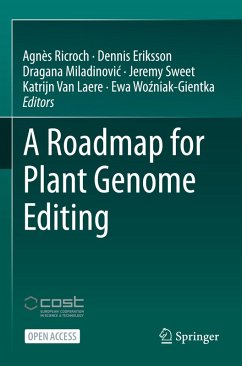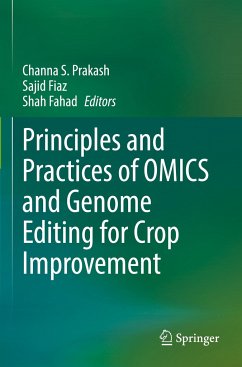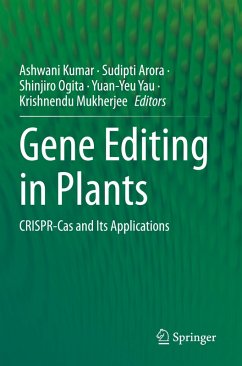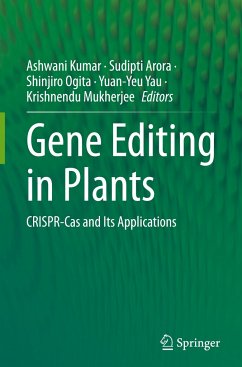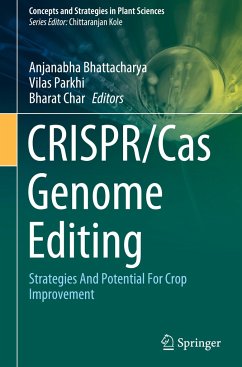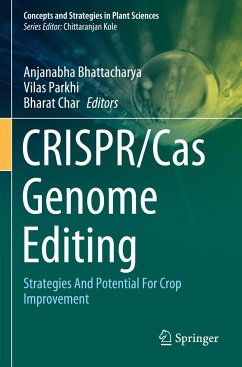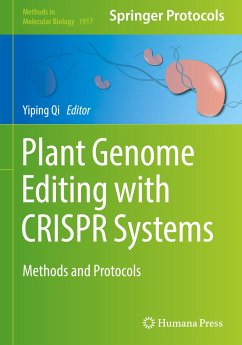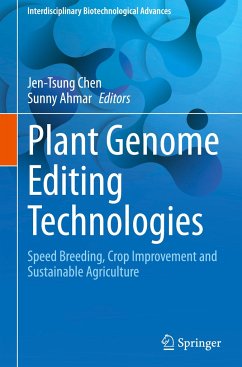¿Dr Agnès RICROCH has a PhD in genetics and plant breeding and obtained an HDR (ability to conduct researches) from Paris-Saclay University (Orsay, France) in genetic resources and plant breeding. She was a visiting researcher at Texas Tech University and Duke University (USA) and at the John Innes Institute (UK). She is a senior lecturer at AgroParisTech (Paris, France) and Adjunct Professor at Pennsylvania State University, College of Agricultural Sciences (USA), she teaches biotechnology and bioethics since 2016. She was a visiting professor at the University of Melbourne (Australia) in 2015. She is a researcher in IDEST laboratory at Paris-Saclay University, Faculty Jean-Monnet, Sceaux (France), where her research focuses on benefits-risk assessment and regulation of green biotechnology (GMO, New Genomic Techniques). Member elected in 2015 of the Academy of Agriculture of France, she is thehead of the Life Sciences section since 2016. She was the chair of the working group "New biotechnologies for agriculture and food" (2016-2019). She was pointed as member of the French Scientific Group of Interest of green biotechnologies (2015-2019). She is a member of the management committee of the European "Cost PlantEd" scientific program (2019-2023). She was named to the International Directory of 23 women in biotechnology (Woman in Biotechnology Law and Regulation) in 2015. She published both in French and English six books, twenty-six chapters and more than ninety scientific articles in peer-reviewed journals and scientific journals and participated in one hundred and sixty scientific conferences on biotechnology. She published scientific articles in Nature Biotechnology. She was notably invited as keynote speaker at OECD on applications of genome editing in agriculture (2018). She givesnumerous interviews to national and international newspapers, radio and television. Member of the Society of Writers of France (Société Des Gens de Lettres) as a writer. Member of the Ethics Committee of Order of Veterinarians of France. She was awarded the Limagrain Foundation Prize of the Academy of Agriculture of France in 2012. She is a Knight of the National Order of the Legion of Honour of France in 2019. Dennis Eriksson has a PhD in Genetics and Plant Breeding and is Associate Professor at the Swedish University of Agricultural Sciences (SLU) as well as Professor of plant functional genetics at the Inland Norway University of Applied Sciences (INN). He is currently developing gene editing in potato for virus resistance, and in sweetpotato to adapt the crop for cultivation in Scandinavia. He has worked interdisciplinary for about five years (2017-2021) with the regulatory frameworks for plant biotechnology and genetic resources, including biosafety, access and benefit-sharing (ABS) and plant variety rights (PVR). He is the Chair of the COST Action PlantEd (CA18111, 2019-2023) and Coordinator of the Horizon Europe-funded project GeneBEcon (2022- 2025). Dr Dragana Miladinovi¿ graduated in 1993 from the Faculty of Agriculture, University of Novi Sad, Department of Field and Vegetable Crops, where she received her master's degree in 1997 in the field of Genetics and Plant Breeding. She defended her doctoral dissertation in 1999 at the Faculty of Biology, University of Belgrade, in the field of Plant Physiology. During the preparation of her doctoral dissertation at INP ENSAT, Toulouse, France, in 1998, she acquired the title of Graduated University Researcher (DRU) in the field of Molecular and Cell Biology. She has been employed at the Institute of Fieldand Vegetable Crops since 1996. She became a research associate in 2000, a senior research associate in 2004, and a principal research fellow in 2007. She completed postdoctoral training in plant biotechnology at Cornell University, USA in 2004. Dragana Miladinovi¿ is a member of Expert Biosafety Committee, Ministry of Agriculture, Forestry and Water Management, R. Serbia since 2001 and vice chair since 2007. She is the representative of Serbia in the European Association for Research in Breeding EUCARPIA, as well as a member of the Society of Geneticists of Serbia, where he is a member of the presidency. She is a member of the editorial board of the journal Genetika and an associate editor of the journal Frontiers in Plant Science. The field of research that Dr. Dragana Miladinovi¿ is the biotechnology of oil crops, with an emphasis on the development and application of molecular biology methods in the creation of genotypes resistant to biotic and abiotic stress. She is also a head of Centre of Excellence for Innovations in Breeding of Climate-Resilient Crops - Climate Crops of Institute of Field and Vegetable Crops. She has participated in many national and international projects. She is a leader of Horizon Europe Twinning project CROPINNO (101059784) and the project funded by the IAEA Enhancing Productivity and Resilience to Climate Change of Major Food Crops in Europe and Central Asia (RER5024). She is the author and co-author of 3 books, 9 chapters in monographic publications, 46 papers published in journals from the SCI list, as well as one patent, 21 technical solutions and 99 sunflower hybrids and one variety of oilseed rape. Jeremy Sweet has spent the last 40 years conducting research on Crop improvement and plant diseases. Much of this work was conducted at NIAB Cambridge studying sustainable crop production, integrated disease management, environmental and agronomic impacts of GM crops, and gene flow to crops and wild relatives. He was coordinator of the UK BRIGHT project which studied herbicide tolerance, and he was also coordinator of the European Science Foundation programme "Assessing the Impact of GMOs" that brought together all the major research groups in this area in Europe. He was a coordinator of the EU SIGMEA project analysing data on gene flow and gene impacts and was a participant in the EU CO-EXTRA programme and the BBSRC Gene flow project. He was a member of the EFSA GMO Panel for 12 years until 2018, providing scientific opinions on the risks associated with GMO applications in the EU. He has served as chairman of the Environmental, Post Market Environmental Monitoring and GM Fish Working Groups of the EFSA GMO Panel. He was a member of the GM Insects working group and has developed a number of the EFSA Guidance Documents on ERA and risk management. He was a member of the BBSRC/Phyconet Management Board and participated in the ALGEBRA project on GM algae and in an EFSA study of RNAi GM plants. He is an author in over 50 scientific papers on GMOs, numerous plant pathology papers and editor of 2 books. He developed his own consultancy in 2004 and is director of Sweet Environmental Consultants which provides research and advice on GMOs and Plant Health to the European Commission, European governments, FAO/UNIDO/UNEP and scientific organisations and academies of several countries. He has provided training and other advisory services in European, Asian and S American countries. He is a member of the PlantEd COST action on gene editing of plants. Katrijn Van Laere obtained a Master degree in Bioscience Engineering at GhentUniversity, Belgium (2002) and conducted a PhD at the Flanders Research Institute for Agriculture, Fisheries and Food (ILVO; 2008) on breeding opportunities for woody plants. After her PhD, she became a postdoctoral researcher at ILVO, where she currently work as senior scientist. She has more than 15 years of experience in breeding research, supporting plant breeding programs (woody plants, ornamentals, red clover, grasses, chicory) with molecular and cytogenetic/microscopic techniques, and advanced (in vitro breeding) techniques. She is one of the leading members of the CRISPR/Cas genome editing team at ILVO, occupied with the implementation of CRISPR/Cas technologies for several crops (e.g. chicory, potato) and traits. She is the vice-chair of working Group 1 (technical platforms) of the COST Action PlantEd (CA18111, 2019-2023) and partner in the Horizon Europe-funded project GeneBEcon (2022-2025). She have (co-)authored 33 peer reviewed papers, 6 book chapters and conference proceedings Ewa Wöniak-Gientka has a Ph.D. in earth sciences (2019). Her Ph.D. thesis was related to bioeconomy development. She works as an assistant professor at the Institute of Bioorganic Chemistry Polish Academy of Sciences (IBCH PAS). She has been the head of the Bioeconomy and Sustainable Development Team at IBCH PAS in Poznan since 2021. She conducts interdisciplinary research at the intersection between biology, biotechnology and bioeconomy. Her research covers the economic and social aspects, as well as public opinion on bioeconomy and biotechnology in Poland, the European Union and worldwide. The aim of her research is also to conduct activities aimed at increasing awareness and knowledge of Europeans about the bioeconomy. She is interested in the circular economy, biotechnology, agribiotechnology, economic and social aspects of the development of bioeconomy, public perception of bioeconomy, and popularisation of science.She was involved in two international projects. In 2017-2020, she was a contractor in the international project entitled 'Innovative processing technology of rapeseed products for poultry nutrition' (ProRapeSeed; ERANET- CORNET #22/87/2017). She implemented the tasks in WP3 'Commercial potential of new products in a competitive market'. Since 2019, she has been a member of the PlantEd COST action (CA18111, 2019-2023), a vice leader of WG4, and a Management Committee Substitute in this project. Since 2015, she has been the author and co-author of sixteen publications.







